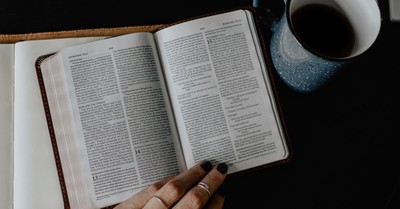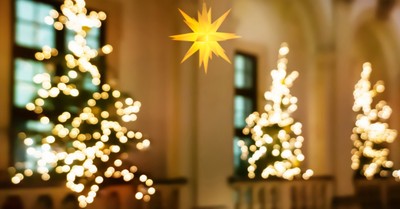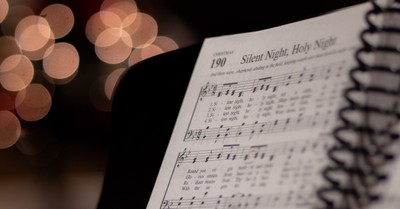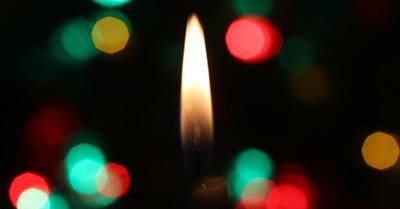Can We Let Go of the Burden of Worry?
- Sarah J. Hauser sarahjhauser.com
- Updated Jun 28, 2023

I’m a worst-case scenario thinker, prone to worry about any number of issues, such as the outcome of major surgery or meeting deadlines, or my kids falling off their bikes. Worries often plague my soul, and I struggle to escape them. In the Sermon on the Mount, Jesus told His listeners, “So do not worry about tomorrow, for tomorrow will bring worries of its own. Today’s trouble is enough for today” (Matthew 6:34 NRSV). Do not worry. It sounds so simple, doesn’t it?
The worry we’re talking about isn’t the same as thoughtful concern, care, or caution. The term, as Jesus used in Matthew 6, means “to have an anxious concern, based on apprehension about possible danger or misfortune” (Louw and Nida, p. 312). The idea can even be expressed in some languages by phrases like “‘to be killed by one’s mind’ or ‘to be pained by thinking’” (Louw and Nida, p. 312). We play out all that could possibly go wrong and feel the pain of outcomes yet to happen. Worry hurts.
Yet flippantly telling yourself (or someone else), “Don’t worry about it,” doesn’t often work. We can’t will ourselves to not worry. (For this piece, the terms “anxiety” and “worry” are used interchangeably. But I am referring to the general idea of worry. I am not attempting to address clinical, physiological anxiety.) Believe me, I’ve tried. When Jesus told His listeners not to worry, He didn’t offer that statement as a shallow sentiment. He told them not to worry—but He also reminded them right then why that’s possible. There’s no need to worry because of who God is: He’s the one who feeds the birds of the air. He makes the lilies grow. He even clothes the grass. He helped turn their gaze from their problems to their God.
The Worries of the Israelites
The Israelites in the Old Testament often worried. When I think about the dangers and hardships they faced, I can’t blame them. God miraculously delivered them from the hand of the slave-driving Pharaoh; but as they fled, they found themselves trapped between the Red Sea and Pharaoh’s quickly approaching army. They panicked and cried out to Moses:
“Is it because there are no graves in Egypt that you have taken us away to die in the wilderness? What have you done to us in bringing us out of Egypt? Is not this what we said to you in Egypt: ‘Leave us alone that we may serve the Egyptians? For it would have been better for us to serve the Egyptians than to die in the wilderness.’” (Exodus 14:11-12)
Despite the miraculous works they had witnessed—like the Nile River turning to blood and God leading them as a pillar of cloud and a pillar of fire—the people could not fathom how to escape what they now faced. Behind them, an angry and humiliated Pharaoh chased them with a vast army of chariots and military officers, and in front stood an impassable body of water.
Moses responded, “Fear not, stand firm, and see the salvation of the Lord, which he will work for you today” (Exodus 14:13). Don’t worry! Not because the dangers we’re stuck between aren’t real—but because the Lord can and will save.
Moses stretched out his hand over the sea, and the waters parted in two. The people walked through on dry ground, a wall of water on their left and one on their right. When they were all safely on the other side, the Egyptians still in hot pursuit, Moses stretched out his hand again, and those walls of water came crashing down. The Israelites watched in awe as God saved them from their enemies.
Can you imagine seeing this? Can you imagine your reaction when Moses first says, “Fear not!” I’d shake my head and roll my eyes and yell, “Yeah right, Moses! Are you in denial about what’s happening?” Of course, Moses wasn’t in denial. No one could ignore how big their problems were—but God was bigger.
Who Is Like Our God?
Our worries can seem vast when they’re all we see. But when we take those worries and compare them to our God? No contest. After the parting of the Red Sea, Moses and the people burst out in song, “I will sing to the LORD, for he has triumphed gloriously; the horse and his rider he has thrown into the sea… Who is like you, O LORD, among the gods? Who is like you, majestic in holiness, awesome in glorious deeds, doing wonders?” (Exodus 15:1, 11). No one. There is no one like our God, no problem beyond what He can handle.
After being rescued from Egypt, you’d think the Israelites would have learned their lesson. Yet not long after, while journeying through the wilderness, they grumbled because they lacked drinkable water.
They worried about dying from thirst, and yet again, God saved them, miraculously making the bitter water sweet (Exodus 15:22-25). They panicked when their stomachs growled in hunger, telling Moses and Aaron they would have preferred God to kill them in Egypt (Exodus 16:2-3). Then God provided manna from heaven. And then again when they were thirsty, they complained. But still, God gave them what they needed (Exodus 17:1-7). He continually made good on His promise to Israel, leading them into the land flowing with milk and honey.
Time and again, the Israelites fixed their eyes on their worries instead of their God. They were distraught and scared, unable to imagine how God could possibly solve all their very real and very hard problems.
We do the same, don’t we? Sometimes we get so focused on what we can see that we lose sight of the hope we have in what is unseen. We forget we serve the same God who parted the Red Sea and provided manna from heaven. He’s our Creator and Sustainer, the one who calmed storms and raised the dead. If He has that kind of power, then “is anything too hard for the LORD?” (Genesis 18:14).
Our need to feel safe is real and good and valid, and our fears and worries alert us that something’s off. But instead of being consumed by our worries and fears, those things can nudge us to turn our gaze and find safety in our all-powerful, loving, and trustworthy God.
Sources:
Johannes P. Louw and Eugene Albert Nida, Greek-English Lexicon of the New Testament: Based on Semantic Domains (New York: United Bible Societies, 1996), 312.
Photo Credit: ©Getty Images/m-imagephotography
Sarah J. Hauser is a writer and speaker living in the Chicago suburbs with her husband and four kids. She shares biblical truth to nourish the soul -- and the occasional recipe to nourish the body. Sarah completed her B.A. and M.A. at Wheaton College. She's a member of the Redbud Writers Guild and has written for Coffee + Crumbs, Risen Motherhood, The Rabbit Room, The Gospel Coalition, (in)courage, and more. Find her at sarahjhauser.com, on Instagram (@sarah.j.hauser), or check out her monthly newsletter at sarahjhauser.com/subscribe.com.

.jpg)


















